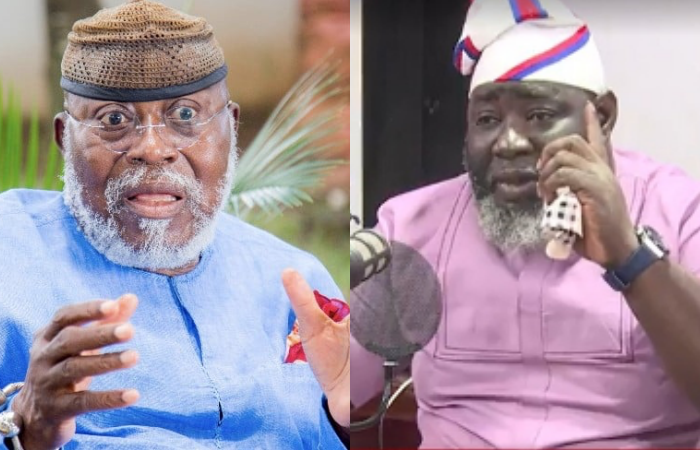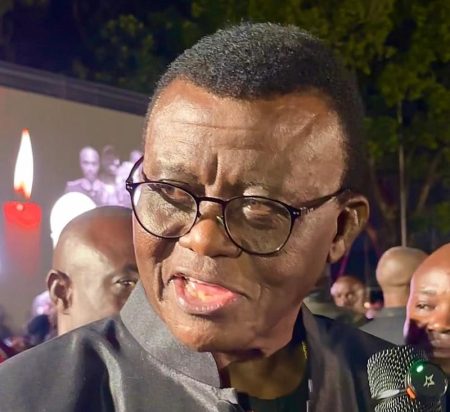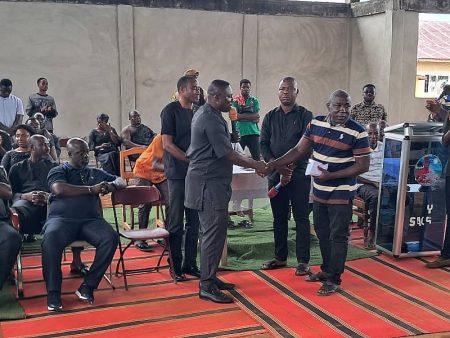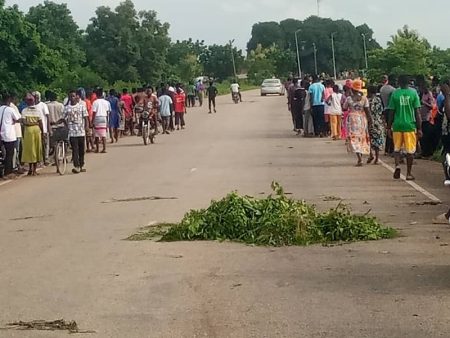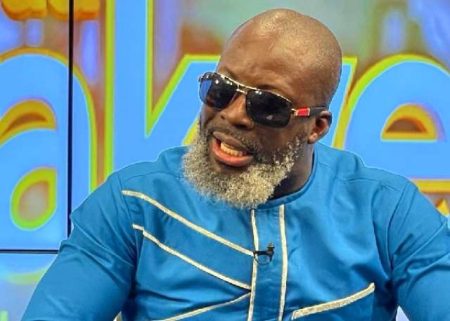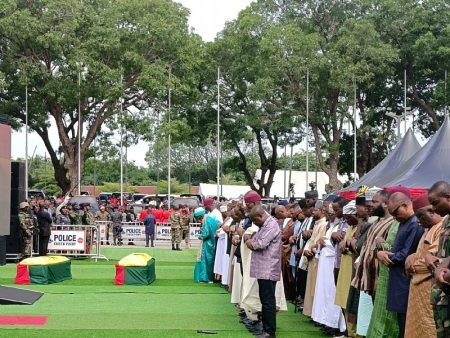The political landscape in Ghana is bracing for potential upheaval following a provocative statement by Alhaji Osman Masawudu, the Third Vice Chairman of the ruling New Patriotic Party (NPP). In a live radio interview, Masawudu declared that Dr. Nyaho Nyaho-Tamakloe, a founding member of the NPP, is no longer considered a member of the party. This declaration, while lacking formal expulsion procedures, carries significant weight given Dr. Nyaho-Tamakloe’s prominent stature within the party and his long history of outspoken criticism against the current NPP leadership. Masawudu justified his assertion by citing Dr. Nyaho-Tamakloe’s persistent and public critiques of the party’s direction, suggesting that these actions demonstrate a fundamental departure from the NPP’s core values and vision. This incident has ignited a debate within the party and raised concerns about deeper fissures within its ranks.
Dr. Nyaho-Tamakloe, a respected statesman and former diplomat, has earned a reputation for his candid and often sharp commentary on political affairs, both national and within the NPP. He has consistently voiced concerns about what he perceives as a deviation from democratic principles within the party, particularly under the current leadership. His criticism has touched on various issues, from policy decisions to internal power dynamics, often drawing both applause and criticism from within the NPP. While some view his outspokenness as a vital check on the party’s leadership, others consider it a disruptive force that undermines party unity. The lack of a formal response from Dr. Nyaho-Tamakloe to Masawudu’s statement has further fuelled speculation and heightened the sense of anticipation surrounding this unfolding political drama.
Alhaji Osman’s declaration appears to reflect a broader tension within the NPP between the established leadership and some of its veteran members. Dr. Nyaho-Tamakloe’s criticisms, often echoed by other long-standing members, suggest a growing unease about the party’s current trajectory. This sentiment points towards a potential divide between those who hold positions of power within the party and those who feel their voices are being marginalized. Masawudu’s statement, therefore, could be interpreted as a signal of the party’s attempt to consolidate its authority and silence dissent, particularly from influential figures like Dr. Nyaho-Tamakloe.
The timing of this public declaration, as the NPP begins preparations for the 2028 general elections, adds another layer of complexity to the situation. With the next electoral cycle on the horizon, internal unity and cohesion become paramount for any political party. The public airing of this internal disagreement could weaken the party’s image and potentially create an opening for opposition parties to exploit. The NPP will undoubtedly need to address this internal conflict swiftly and effectively to mitigate any potential damage to its electoral prospects.
The fallout from this incident could take several forms. It could lead to a formal expulsion of Dr. Nyaho-Tamakloe, solidifying the apparent rift and potentially prompting other dissenting voices to leave the party. Alternatively, it could trigger a period of internal reflection and dialogue, leading to reconciliation and a renewed focus on party unity. The NPP’s response to this situation will be crucial in determining the long-term impact on its internal dynamics and its overall political standing.
For now, the silence from Dr. Nyaho-Tamakloe only adds to the intrigue. His response, when and if it comes, will likely shape the trajectory of this developing narrative. Will he confirm his departure from the party, effectively endorsing Masawudu’s declaration? Or will he challenge the assertion and continue his critique from within? His decision carries significant weight and could either exacerbate the existing tensions or open the door for a potential resolution. The NPP’s rank-and-file, along with political observers across Ghana, are watching closely to see how this situation unfolds and what it portends for the future of the party. This incident serves as a microcosm of the broader challenges facing political parties in Ghana, the delicate balance between maintaining party discipline and respecting the right to dissent, and the complexities of navigating internal conflicts while striving for electoral success.





